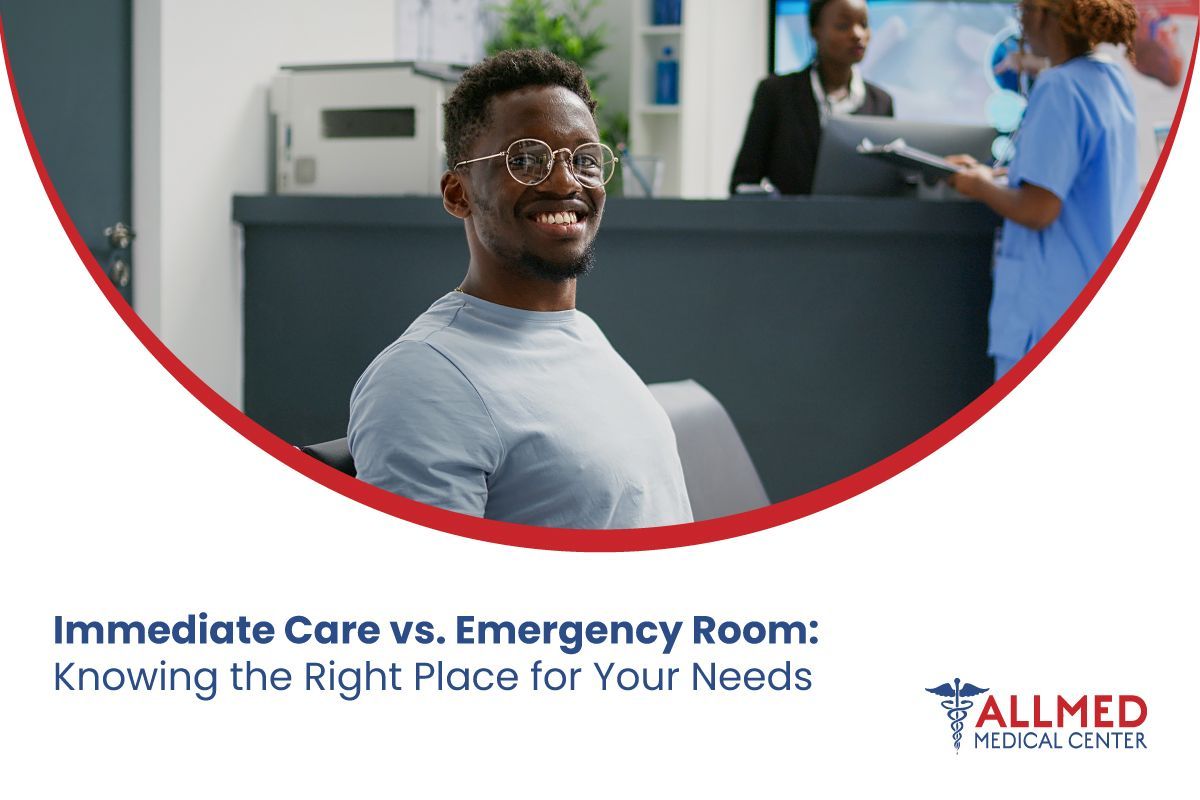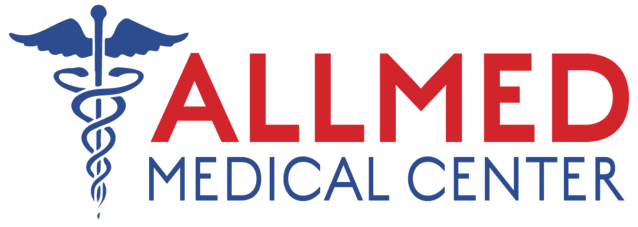Immediate Care vs. Emergency Room: Knowing the Right Place for Your Needs

Knowing where and when to seek immediate medical attention is crucial in healthcare. Getting emergency care or going to an emergency room can significantly impact your quality of care, as it ensures you get the precise attention for your situation.
If you're curious about the differences between these medical facilities, this comprehensive guide is for you. From the reasons to go to an emergency room to the immediate care or emergency services you might require, here's everything you need to make informed choices tailored to your medical condition.
Understanding Immediate Care vs. Emergency Room: Making the Right Choice
At some point in your life, you might have asked, “Is immediate care the same as urgent care?” They may sound the same, but in medical terms, they have some key differences. Here’s what sets them apart:
What is Immediate Care?
An immediate care facility, also known as an urgent care or emergency walk-in clinic, addresses non-life-threatening medical conditions that require prompt attention. So, to know when to go to an urgent care clinic, determine whether or not you have a common ailment or an injury, such as the following.
A. Common Ailments:
- Flu
- Colds
- Sore throat
- Ear infections
- Urinary tract infections
B. Minor Injuries:
- Cuts
- Burns
- Sprains
- Fractures
Unlike regular primary care offices, immediate care centers offer extended operating hours and don’t require appointments. In addition to the convenience, they often have shorter wait times than emergency rooms.
What is Emergency Care?
Emergency care deals with life-threatening or limb-threatening conditions that necessitate immediate intervention. Emergency rooms, typically within hospitals, function 24/7 and manage various conditions, including:
- Stroke
- Seizures
- Poisoning
- Chest pain
- Severe trauma
- Severe bleeding
- Difficulty inhaling
- Severe allergic reactions
Selecting the appropriate level of care is of the utmost importance. If you have a life-threatening condition, go to an emergency room and get medical attention. If your condition is not life-threatening, seek treatment at an immediate care center. Knowing when and where to go could literally mean the difference between life and death.
Choosing Between Immediate Care and Emergency Care: Making Informed Decisions
Here’s a comprehensive comparison between immediate and emergency care, so you know how to make informed choices when the medical need arises.
- Assess the Urgency: Assess the situation and determine when to go to immediate care. Prioritize safety by choosing the emergency room. Contact local emergency services or dial 911 for advice or assistance.
- Prioritize Chronic Conditions: If you have chronic ailments or a history of conditions like heart problems, diabetes, or cancer, the emergency room is your optimal choice, even if symptoms appear mild. Underlying complexities could necessitate a higher level of care.
- Seek Professional Guidance: Your primary care provider or regular doctor provides personalized guidance on the most suitable medical care facility. Using your medical history and current circumstances helps you choose a trustworthy emergency room or urgent care facility.
- Assess the Timing: Evaluate the timing of your symptoms. Immediate care centers often offer extended hours and walk-in services that are ideal for non-life-threatening issues. Meanwhile, emergency rooms operate around the clock, ready to handle critical cases.
- Consider the cost: There is a notable difference between an emergency room and an immediate care clinic when it comes to cost. Urgent care centers have significantly enhanced healthcare accessibility and decreased costs.
Now that you know the distinctions between immediate care clinics and emergency room services, you should be able to navigate your healthcare journey with confidence and clarity. This newfound understanding ensures you choose the most appropriate care when and where you need it.
Frequently Asked Questions (FAQ) About Immediate Care and Emergency Care
Are emergency rooms or urgent care centers able to give prescriptions?
If needed, immediate care centers and emergency rooms prescribe medications for your condition. However, it’s possible that they cannot refill your existing prescriptions or prescribe controlled substances such as opioids or benzodiazepines. You must see your primary care provider or a specialist for these medications.
Do emergency rooms and immediate care centers offer vaccinations?
Yes, some urgent care centers and emergency rooms offer vaccinations for common diseases such as flu, tetanus, hepatitis, and HPV. However, not all facilities have the same types or availability of vaccines. Check with the website before visiting their facility for more information.
Immediate Care vs. Emergency Room: Expert Insights and Recommendations
In the dynamic landscape of medical care, being knowledgeable empowers you to make the best decisions for your health. Immediate care and emergency rooms serve distinct purposes, catering to different levels of medical urgency. Whether you are facing a minor injury or a critical situation, knowing when to choose between immediate care and the emergency room ensures that your health is in capable hands.
Discover the right healthcare solution for your needs at AllMed Medical Center. You will find us when you search for "immediate care centers near me" or "emergency walk-in clinic in Sacramento." Our immediate care doctors provide expert medical attention, whether urgent or specialized.
Schedule your visit today and experience comprehensive care that is trustworthy. Call 1-833-255-6332 or hit the
link given right away. Use this
link to choose your preferred clinic location.
AllMed Medical CentersServing
Greater Sacramento
Allmed Medical Center | All Rights Reserved.









